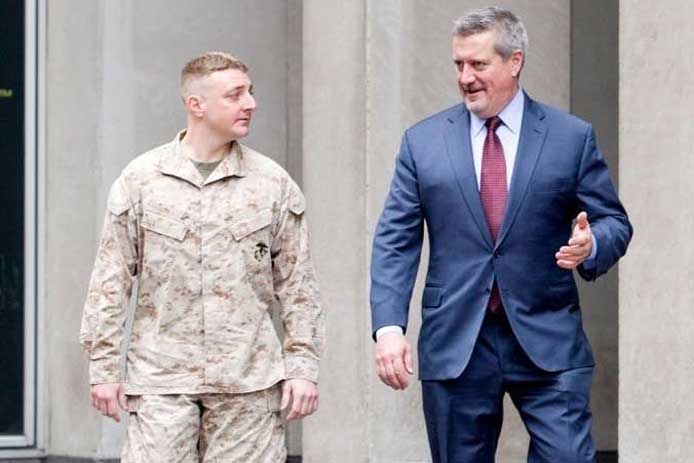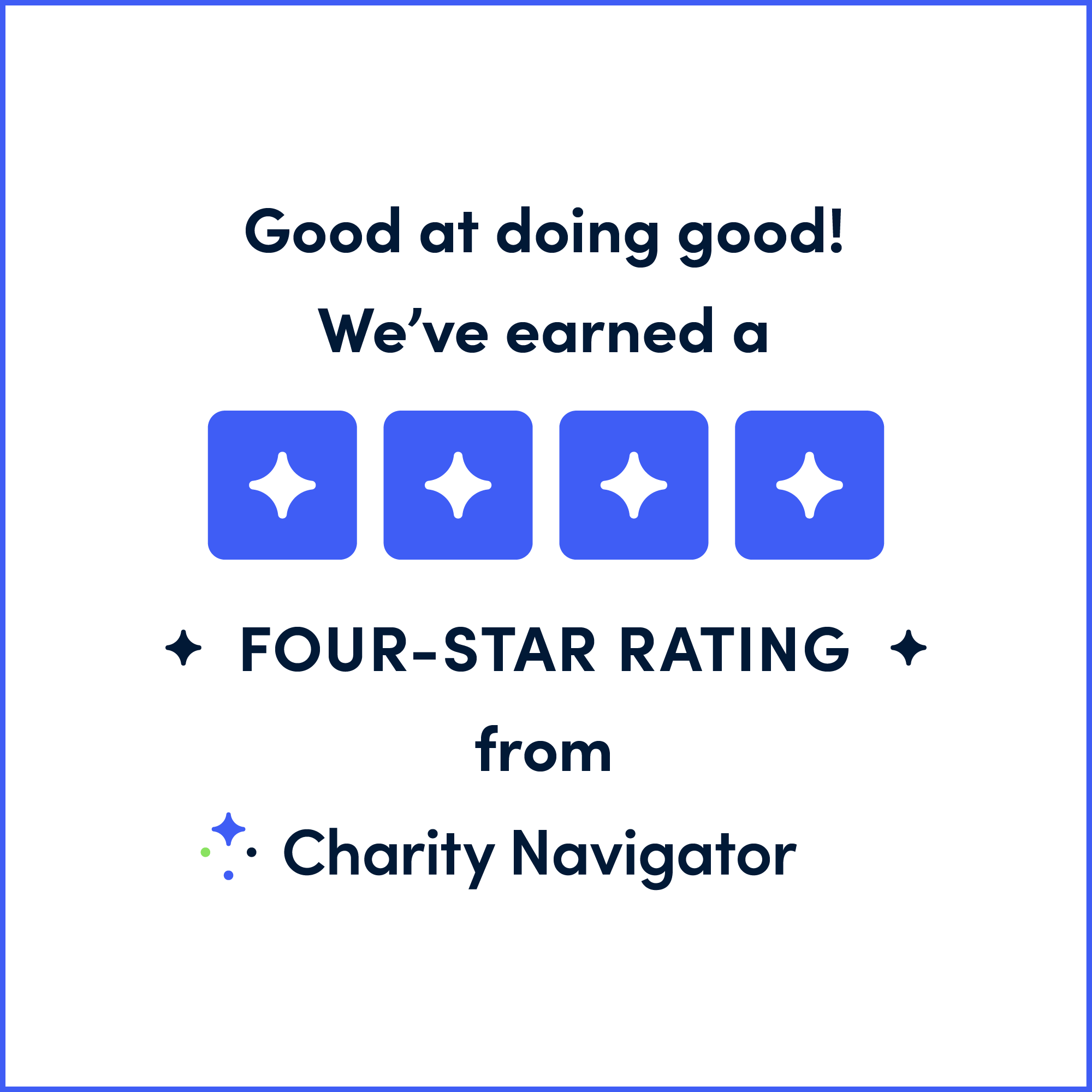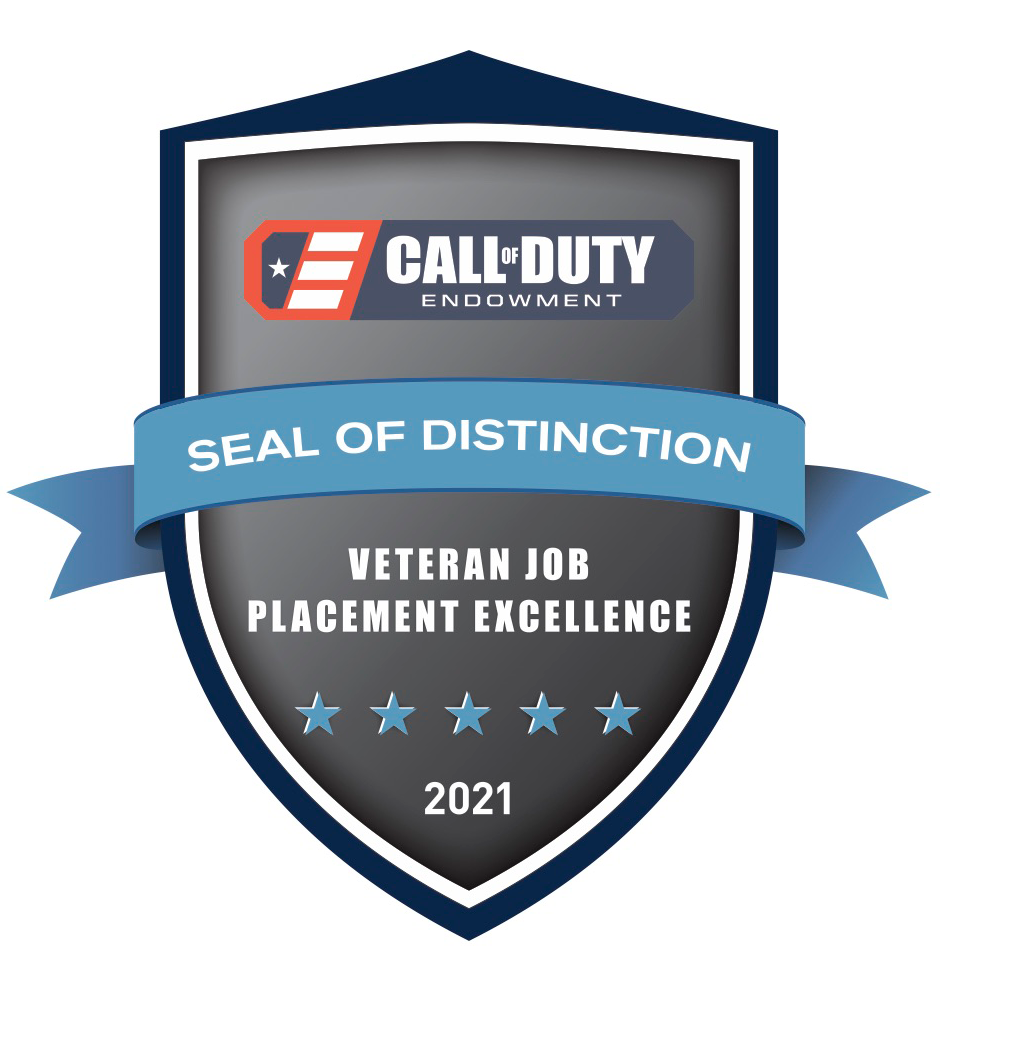Things I Learned from Helping Veterans: Even stellar service members may need help toward civilian success, group founder says

U.S. Marine Corps veteran Brent Jones speaks with American Corporate Partners mentor Joe Vincent, who works for News Corp. Raytheon is providing 50 volunteer mentors to American Corporate Partners, which helps military veterans build civilian careers. (American Corporate Partners photo)
Sidney Goodfriend never enlisted in the military, but he’s learned a few things about life in the service – and a lot about trying to start a career afterward.
Goodfriend, a former investment banker, is the founder of American Corporate Partners, a nonprofit that helps veterans build civilian careers through one-on-one counseling from private-sector mentors. Raytheon employees will take part in the program as part of the company's initiative to honor and empower military veterans. To mark the new partnership, Raytheon.com asked Goodfriend to share lessons he has learned since starting American Corporate Partners in 2008.
Here are some of his insights:
Even high-ranking veterans want career help. When people think about veterans leaving the service, they think of the younger ones. But Goodfriend says many of those who apply to his program are older – 35 percent are older than 35, and more than 20 percent are older than 40. Sixty percent already have their four-year degrees.
They’re the ones who often have the toughest time finding a career, Goodfriend said. “I have two three-star generals I’m trying to help right now. They don’t have civilian careers. One guy is retiring next year, and he doesn’t know what he’s going to do,” he said. “A very senior general in the U.S. Army, and he doesn’t have a civilian network.”
“It’s hard enough to get a job if you’re 40 years old,” Goodfriend said. “Imagine if you’re 40 years old, trying to get a job with no private-sector experience.”
People still harbor stereotypes about veterans. Overall, the public looks favorably on the men and women in the military – 78 percent of U.S. adults feel service members contribute “a lot” to society, according to a 2013 Pew Research Center poll. But some stereotypes persist, Goodfriend said, particularly about veterans' mental health and level of education.
"Other people, and this is true in my case, have introduced their proteges to their children to set a good example of what people can do when they don’t just serve themselves but serve their country,” he said.
Life in the service leaves little time to plan a civilian career. This goes double for those deployed overseas, Goodfriend said.
“Most corporate employees are constantly managing their career – doing their job well, managing toward a promotion,” he said. “If you’re in the hills of Afghanistan … you don’t have the option to think about what comes next. There’s no one for you to talk to except for your buddies, and there’s not a lot of careers for you to explore online.”
Even exemplary veterans have trouble selling their skills. The problems start with the resume, Goodfriend said. Some are simply far too long. Some are too detailed. Many are packed with unfamiliar acronyms and military abbreviations. Few actually explain the applicant’s achievements in clear, compelling terms.
“Civilian resumes would say ‘Led a group of 20 people, exceeded sales records.’ In the military, they may say, ‘I led a battalion.' But a civilian would have no sense of how large a battalion is,” Goodfriend said.
Job interviews can be even harder, he said. “They may give very short, almost terse responses, which would be more common in the military – yes, ma’am, yes sir,” Goodfriend said. “They may not know how to prepare for an interview. We have numerous questions over the years about how to dress for an interview. Many err on the side of formality.”
Sometimes, all it takes is a little coaching. Since 2008, Goodfriend’s group has provided counsel to more than 6,000 veterans looking to make the leap to private-sector careers. “This program is not rocket science,” Goodfriend said. “This program is helping those who served not by writing a check but by giving a bit of their time, their experience and their wisdom in helping them meet their next challenge, which is finding a career.”











